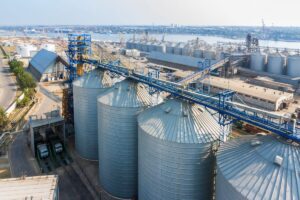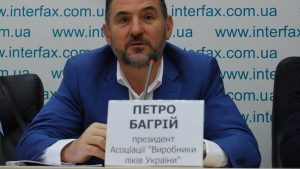
Adaptation of the Ukrainian oil extraction industry to the new realities with power deficit and fan power cuts is inevitable, as it is more profitable for enterprises to provide themselves with autonomous power generation than to incur losses due to downtime of expensive equipment, believes Vladimir Bondaruk, oilseeds trader at Prometey Group of Companies.
“Certainly, the industry was affected by Russian rocket attacks and introduced schedules of blackouts: for example, one plant in the Ternopil region reported a 15% decrease in gross processing due to problems with power supply. But one way or another adaptation to the new realities is inevitable, because pure mathematics works here, when the cost of the generator is incomparably less than the losses from plant downtime,” he said in an interview with Interfax-Ukraine.
Bondaruk has specified that many oil extraction plants (OEZ) have already provided themselves with autonomous power generation and due to this are able to work with sufficient load. Indirectly the fact that “Prometheus” competitors continue to actively buy sunflower seeds for processing due to which the prices for it on the domestic market continue to grow testifies to their complete work.
“We have seen a steady increase in raw material prices since the beginning of the season, and even planned/emergency power outages have not prevented this. Thus, there is reason to believe that the margin of processing still allows the farmer to be interested in selling raw materials at an attractive price, even in conditions of partial loss of productivity by the industry enterprises,” said Bondaruk.
The expert also noted that it is advisable to equip oil extraction plants with generators, because they cannot fully operate in conditions of stabilized power outages, but need uninterrupted supply of electricity throughout the working day.
“I am in contact with a large agricultural holding company with three oil refineries, in total processing up to 4 thousand tons of sunflowers per day, which is one of the best indicators in the country. So, they are now fully autonomous and fully loaded, because at the beginning of January they installed generators and actually compensate for the lack of power in the stationary network without loss of productivity. But, for example, a large power plant in the Vinnitsa region operates at best 60% of its prewar capacity because of the lack of power,” the trader said in an interview.
According to Mr. Bondaruk another alternative to purchase of generators is transition of oil extraction plants to the mode of sunflower processing to export conditions and selling abroad which includes cleaning, drying and separation from ragweed whose admixtures in sunflower seeds are not permitted by European norms.
“A big enough MPEZ in Nikolaev region, which can process 500-700 tons of sunflower per day and had significant power outages, rebuilt the capacity to refine the raw material and then export ready for oil extraction sunflower. That is, they realized that they can’t provide an uninterrupted “crash” (processing) and decided to buy sunflower and bring it to export conditions,” the trader said.
At the same time, according to him, “Prometheus” group of companies has not stopped buying raw materials, despite the problems with electricity.
Prometheus Group provides services in the storage, processing and logistics of crops. Before the Russian aggression the holding owned 34 elevators in the Mykolayiv, Kirovograd, Kiev, Khmelnytsky, Zaporizhzhya, Sumy, Odessa, Kherson and Dnepropetrovsk regions.
By the end of 2021, the group planned to receive $ 45 million EBITDA, while in 2020 this figure reached $ 32.6 million and in 2019 – $ 30.5 million.
The founder and owner of Prometheus Group is Rafael Goroyan.

Pharmaceutical manufacturers have overcome the logistics problems that arose at the beginning of the COVID-19 pandemic and the shortage of certain active pharmaceutical ingredients (APIs), said President of the Association of Manufacturers of Medications of Ukraine (AMMU) Petro Bahriy.
“Among the general problems that have arisen with the introduction of quarantine [at the beginning of the epidemic], I would single out the problems of logistics, difficulties with the import, transportation of pharmaceutical products and their registration in connection with closed borders, as well as problems with the so-called ‘anticovid’ goods, for which there is an increased demand today,” he said in an exclusive interview with Interfax-Ukraine.
Bahriy noted that the price of some APIs of drugs used in the treatment of COVID-19 and complications of this disease has grown significantly in the global market – there are problems with production due to delays in deliveries.
“This is not a critical situation for the industry as a whole. We have to restructure, place orders earlier, realizing that delivery times will be longer than they were before the pandemic. For the entire time of the pandemic, consumers have not particularly felt a shortage of medicines,” he said.